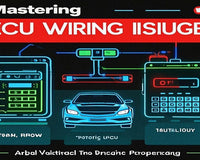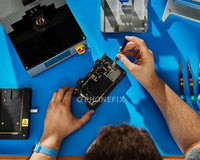Volkswagen (VW) cars are renowned for their engineering prowess, stylish designs, and a rich heritage that has made them a favorite among drivers worldwide. However, like any vehicle, they are not immune to issues. Understanding common VW faults and how to avoid them is crucial for maintaining the performance, reliability, and longevity of your car. 
What are the common faults of Volkswagen cars?
Engine Misfires.
Engine misfires are a prevalent issue in many VW models. This problem can be caused by various factors, such as faulty spark plugs, ignition coils, or fuel injectors. When an engine misfires, it can lead to rough idling, reduced power, and increased fuel consumption. XTOOL A30D scanner can quickly and accurately read vehicle engine fault codes, providing you with detailed information about the root cause of the problem.
Electrical System Malfunctions.
The modern electrical systems in VW cars are complex and can sometimes develop glitches. Electrical problems can manifest as malfunctioning lights, power window failures, or issues with the car's infotainment system. Issues can range from a simple blown fuse to more complicated problems with the ECU (Engine Control Unit). KT200 Plus ECU Programmer can trying to resolve electrical problems that are linked to the ECU., ensuring that it operates at its optimal level.
Transmission Problems.
Transmission issues in VW cars can be a significant headache. Symptoms may include rough shifting, slipping gears, or a complete failure to engage gears. These problems can be caused by a variety of factors, such as low transmission fluid levels, worn - out clutches, or internal mechanical failures within the transmission.
Oil Leaks.
Oil leaks are another common woe for VW owners. Oil seals can deteriorate over time due to heat, age, and wear. A leaking oil seal can result in a loss of oil, which, if not addressed promptly, can cause the engine to overheat and suffer severe damage. Common areas where oil leaks occur include the valve cover gasket, camshaft seals, and crankshaft seals. Use the car oil seal hook pick to deal with it in time to avoid causing bigger problems
How to Avoid VW Faults?
One of the most effective ways to avoid common VW faults is through regular maintenance. This includes typically involves oil changes, filter replacements, and inspections of critical components. Regularly checking and topping up fluid levels, such as engine oil, coolant, and transmission fluid, is also crucial.
In addition, don't ignore warning lights on your dashboard or unusual noises, vibrations, or smells coming from your car. These are often early indicators of potential problems. As soon as you notice something amiss, use the XTOOL A30D Scanner to diagnose the issue. Addressing problems in their early stages can prevent them from escalating into more serious and costly repairs.
While VW cars offer a great driving experience, being aware of common faults and taking proactive steps to avoid them is key. Regular maintenance schedule, and paying attention to warning signs, you can keep your VW running smoothly for years to come.
How to Dodge Regular Volkswagen Glitches?










